Chasing Stars on the Road with Women Leading Change Across Tunisia’s North
The bus left the bustling capital of Tunis early on Friday, September 6, filled with the energy and excitement of 15 EU Jeel Connectors, a representative from the #InTheirEyes community, and officials from both the EU Delegation and EU Neighbours South team. Their mission? To embark on a journey that would take them through the northern forests of Tunisia, visiting EU-funded projects and meeting the people whose lives have been transformed by these initiatives. The road trip, dubbed ‘Chasing Stars on the Road,’ aimed to bring the participants closer to the everyday realities of these projects, showing firsthand their significance to local communities.
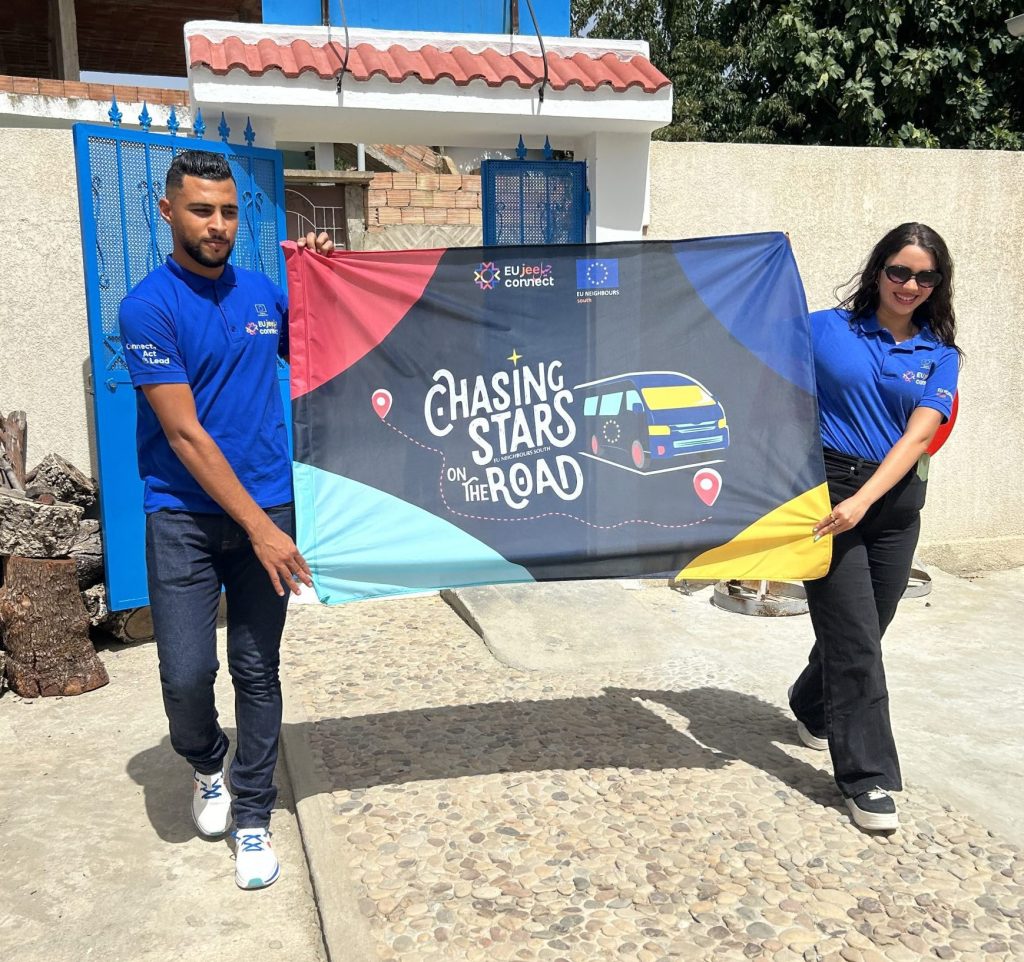
The first stop was the town of Béja, where the group made an appearance on Radio Chamel, a local station, to share their journey with listeners and discuss the significance of their visit. Spirits were high as the Jeel Connectors spoke of their upcoming adventures and the incredible work being done in Tunisia’s northern regions. These areas, known for their lush forests and rich water resources, are home to nearly one-tenth of the country’s population. The locals have ancestral traditions of working harmoniously with nature, which would become even more apparent as the group delved deeper into the region.
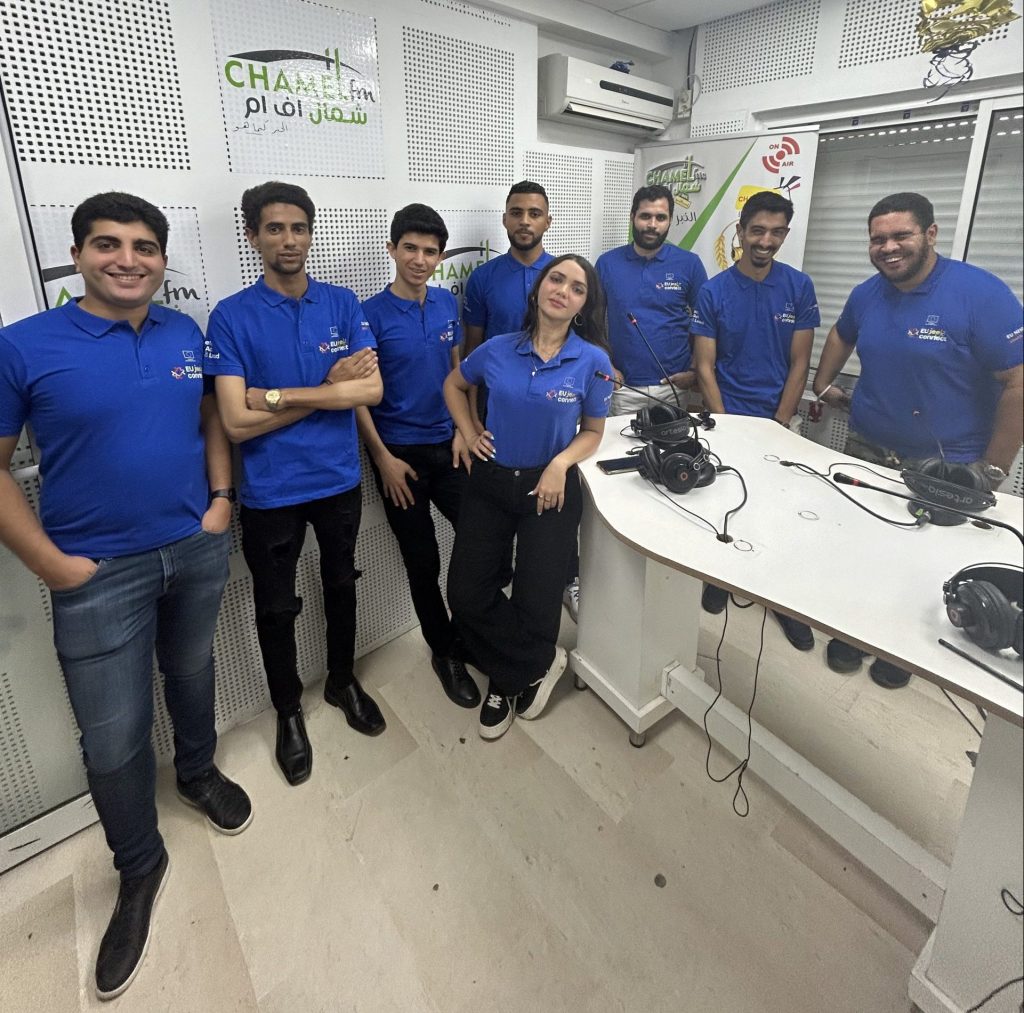
Mabrouka’s Leadership at El Baraka Cooperative in Tbainia
Their next destination was the small forest village of Tbainia, home to the El Baraka unit, a women’s cooperative dedicated to the processing of forest products. Led by the inspiring Mabrouka Athimni, the cooperative produces essential oils, floral waters, and cosmetic products, all made from the rich bounty of local plants like mastic, rosemary, and thyme. Mabrouka, described by those who know her as the “fairy godmother” of Tbainia, greeted the group with open arms. Unmarried and without children of her own, she has poured her heart into leading the cooperative, supporting over 30 women who work under her guidance.
“Mabrouka is the star of the show,” one Jeel Connector exclaimed after hearing her story and witnessing the passion with which she led her team.
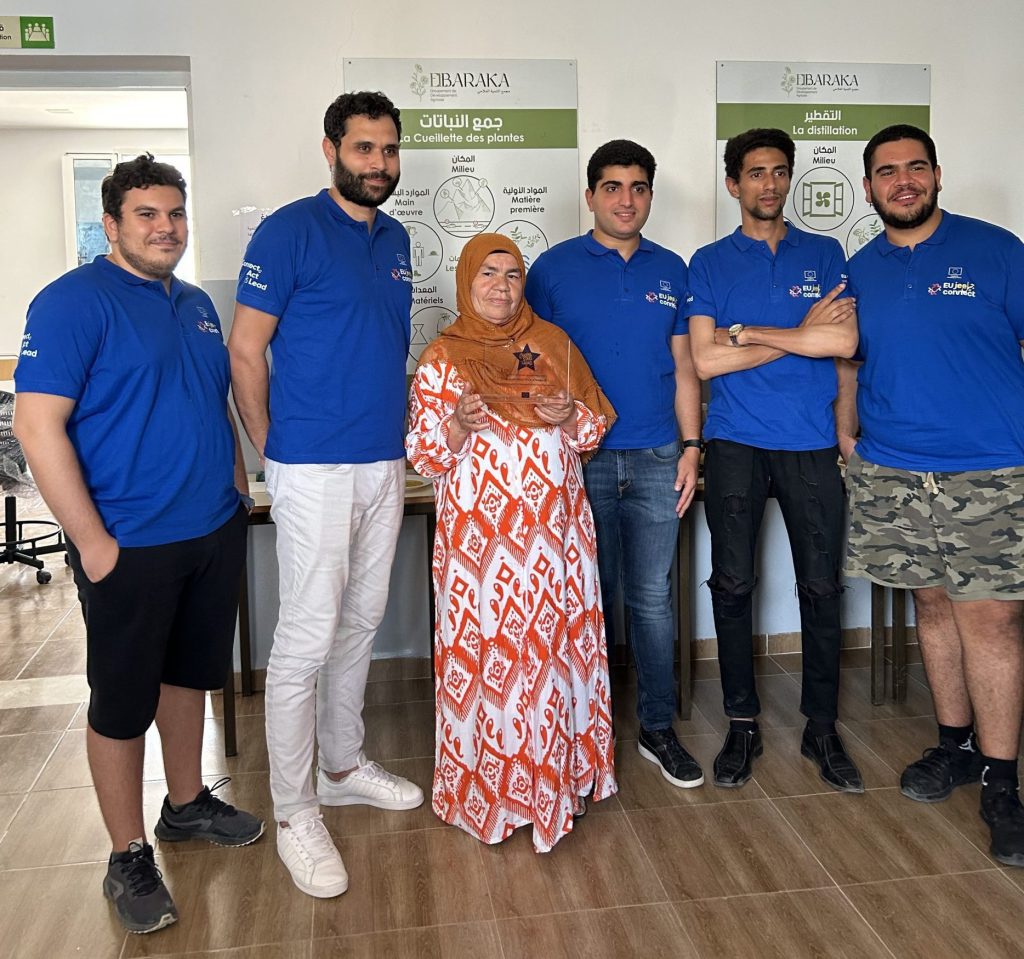
Mr. Jad Boubaker from the International Labor Organization, which implements the EU-funded IPDLI project that supported El Baraka, explained the historical roots of the cooperative. “The Tunisian forests of the north were never untouched places. Since Roman times or even earlier, people have lived in harmony with nature. With EU support, we’re revitalizing these ancient traditions, bringing them into the modern world while ensuring sustainability.”
Boubaker emphasized the importance of local involvement, explaining that the IPDLI project was not simply about handing out aid but about community ownership and empowerment. Women, he said, were the true backbone of the region. “Women work, pay the bills, and run households. They are the leaders here, and you will see this throughout the rest of the trip.”
As the group departed from El Baraka, the sense of admiration for Mabrouka and the women she led was palpable. The road trip, now only just beginning, was already proving to be an eye-opening journey, showing the invaluable impact of these EU-funded initiatives on Tunisia’s rural communities and their rich, vibrant history.
Preserving Tradition with the Women of Assak in Ain Draham
The second stop was the Association Assak, founded in 1995 with a mission to preserve the centuries-old craftsmanship of the Kroumirie women. These talented artisans specialize in the creation of stunning Berber carpets, dyed using natural vegetable colors, a testament to their deep connection with the natural resources of their region.
The EU-funded JEUN’ESS project, which supports this association, has worked to create decent jobs for young people in disadvantaged areas while promoting the social and solidarity economy (SSE). Much like El Baraka, the Assak association places women at the heart of its work, ensuring that these rural women not only safeguard their cultural heritage but also improve their living conditions by promoting Tunisian craftsmanship.
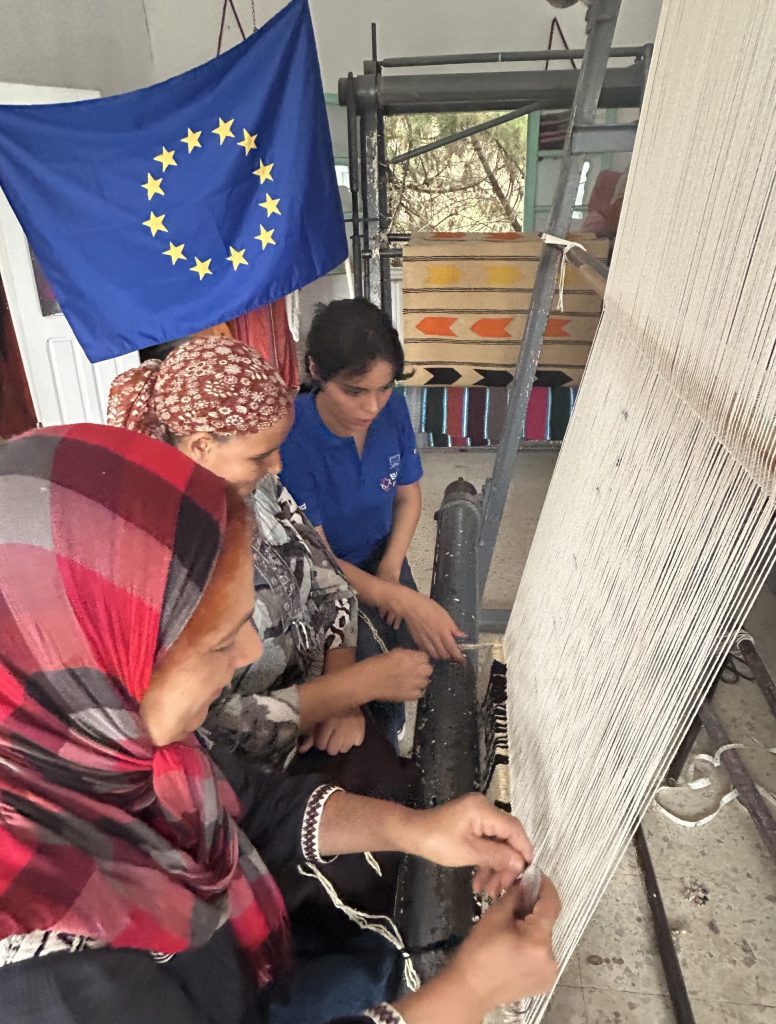
As the EU Jeel Connectors entered the workshop, they were greeted by the rhythmic sounds of weaving looms in action. The women, deeply focused on their work, demonstrated the intricate techniques used to create the exquisite Berber carpets. Watching the weaving process unfold, the youth marveled at the skill and patience it required. Some even bonded with the children of the women who had come along to the workshop, playing games and sharing stories as their mothers worked.
The visit was an opportunity for the participants to appreciate the sustainable use of nature’s resources. “It’s incredible to see how these women, like their ancestors, are working with what nature provides, turning it into something timeless and beautiful,” one of the participants remarked.
Before leaving, many of the road-trippers, captivated by the quality and artistry of the carpets, purchased pieces to take home as a reminder of their journey. The visit to Assak not only highlighted the importance of preserving cultural heritage but also underscored how projects like JEUN’ESS are creating lasting change by providing economic opportunities for Tunisians.
Innovating with Carob at Ceratonia in Jendouba
On Saturday 7 September, the road trip continued as the EU Jeel Connectors departed from Ain Draham and set off for Jendouba. The morning sun cast a golden glow over the landscape, with scenic views along the way. Fields of green stretched across the horizon, dotted with hills, showcasing the richness of the northern Tunisian countryside.
Their first stop of the day was at Ceratonia, a thriving SME founded in 2019 by agri-food engineer Maha Kahlaoui. Specializing in the valorization of carob fruits, Maha and her team have turned an age-old ingredient into a variety of products, including carob powder, molasses, vinegar, and even pomegranate paste and date sugar.
As the group entered the workshop, they were greeted with the scent of freshly processed carob. Maha gave the youth an in-depth tour of her workshop, guiding them through each step of the production process. From the sorting of carob pods to the various machines transforming the fruit into different products, the group witnessed how tradition and modern innovation seamlessly blended to create unique, health-focused items.
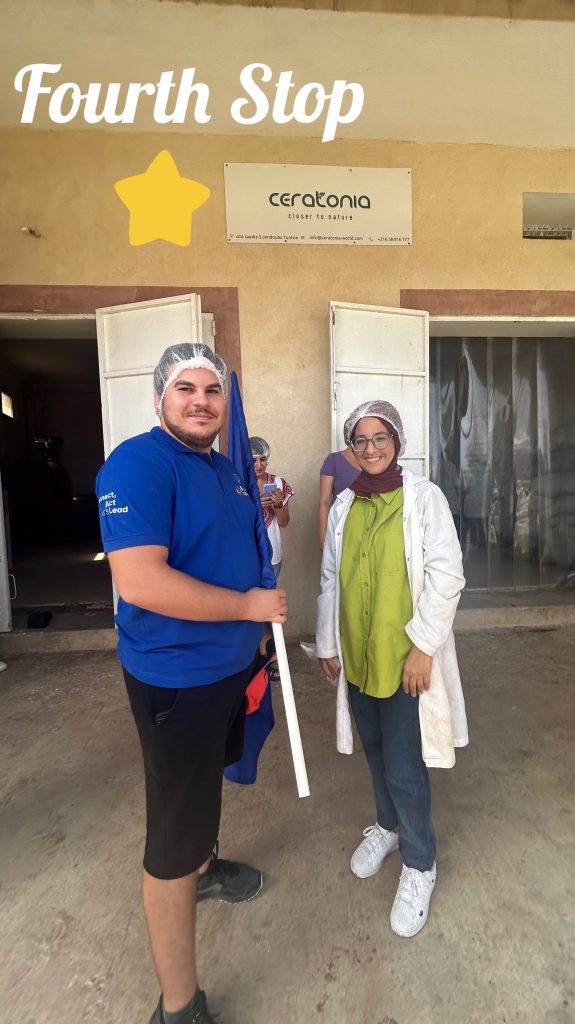
During the tour, Maha passionately explained the roots of her project. “Carob has been here for thousands of years,” she shared, “but it has often been underappreciated, despite its incredible health benefits.” Starting out by focusing solely on carob products, Ceratonia has since expanded its range to include other fruits from the region, showing that innovation can go hand in hand with local heritage.
Thanks to the support of the Innov’i – EU4Innovation project, Maha’s company has flourished. In 2022, Ceratonia received an honorary loan of 30,000 TND, which was used to purchase new equipment and raw materials, further boosting the business and creating seasonal jobs for rural women. The project, funded by the European Union and implemented by Expertise France, aims to foster entrepreneurship and innovation in Tunisia’s interior regions— and Maha’s success story is a testament to its impact.
The Jeel Connectors were particularly impressed by Ceratonia’s commitment to sustainability. Maha explained how her company strives to be zero-waste by finding innovative ways to repurpose by-products, such as using production waste to create animal feed. With products now available in major supermarkets and even being exported, Ceratonia is on a path to further growth and success.
Innovative Artisanship at the Klim Kefois Cluster
The last leg of the journey took the group from Jendouba to the historic town of Kef for the fourth and final stop: the Klim Kefois Cluster, supported by the Creative Tunisia Project. This project, funded by the European Union in collaboration with the Italian Agency for Development Cooperation and implemented by UNIDO, aims to bolster the competitiveness of the crafts sector by modernizing equipment, training artisans, and creating new market opportunities.
Upon arriving in Kef, the group was welcomed into the workshop of Sayda Yacoubi, the powerhouse behind the label Lella Mna and the leader of a group of over 40 local women artisans. Sayda’s workshop was more than just a space for traditional Klim weaving; it was a hub of creativity and innovation. The participants were greeted with an array of stunning handcrafted products, from traditional Tunisian carpets to beautifully woven bed covers, blankets, bags, and even small bathroom rugs.
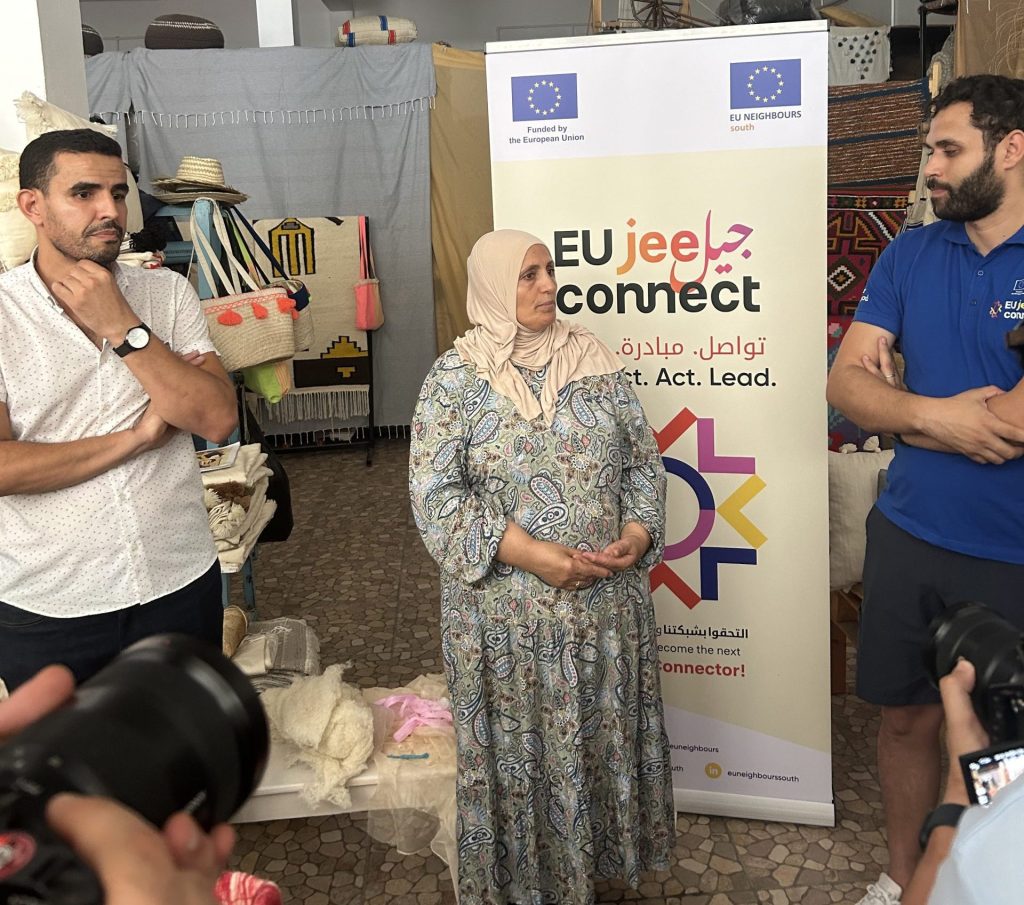
As the youth observed the artisans at work, they were given a chance to get hands-on and learn some of the weaving techniques. One of the highlights of the visit was when they each crafted their own small wool keychains to take home as souvenirs of the trip. The atmosphere was lively and interactive, with the artisans not only sharing their techniques but also their stories, making a deep connection with the visitors.
Sayda, a passionate leader, shared her pride in the progress made by the women under her wing. “In two days, we’ll be at the big fair in Kram,” she announced, referring to the ArtiCrea exhibition, the first edition organized by Creative Tunisia. “We’ve prepared a good stock of our best work yet.” The excitement in her voice reflected the energy and ambition that radiated throughout the workshop.
Radhouen Saidi, the regional representative of the Creative Tunisia project, was on hand to explain the significant impact the project has had on the Kef region. “The work done here represents a leap forward in both quality and variety,” he said. “We’ve collaborated with Tunisian and international designers to help these women modernize their collections and tap into new markets, increasing their profit margins and improving their livelihoods.” He emphasized how the craft industry not only preserves cultural heritage but also provides a safer and more lucrative alternative to agriculture for many women in the region.
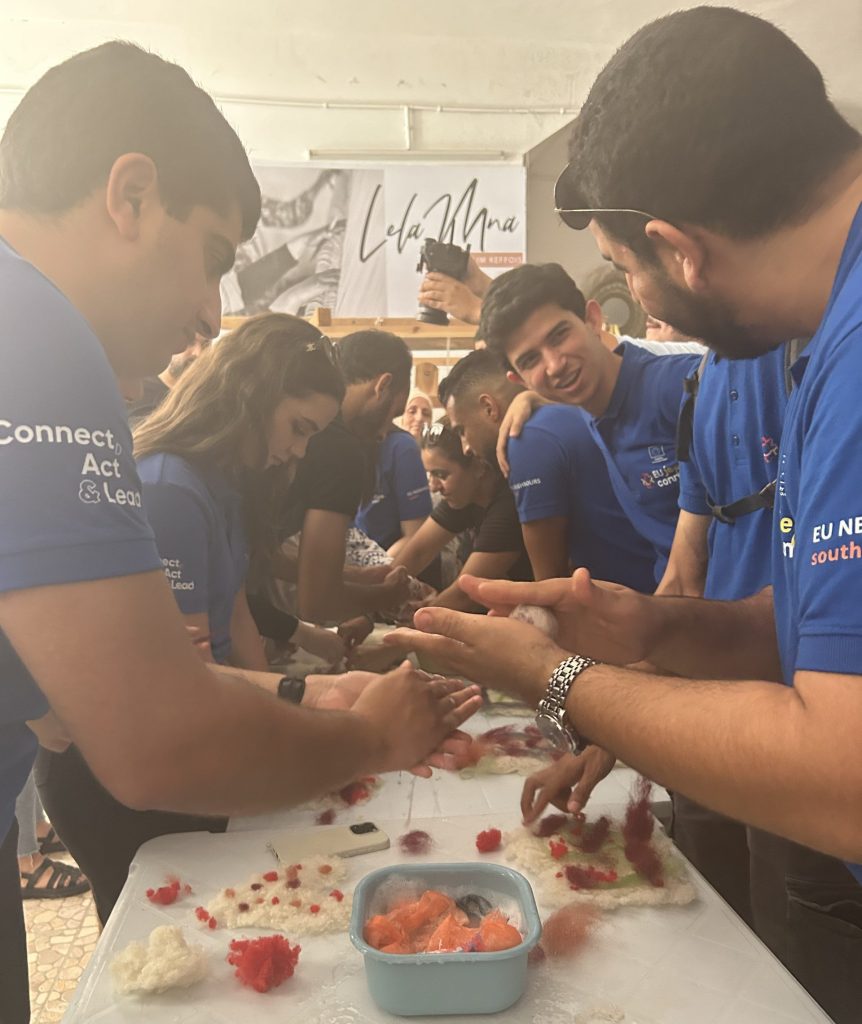
As the final stop on the road trip, the visit to Kef highlighted, once more, a recurring theme throughout the journey: women leading their communities, preserving traditions while embracing innovation, and playing a vital role in driving the local economy. The group departed Kef with full hearts and arms loaded with handmade goods, marking the end of an inspiring adventure that shed light on the transformative power of EU-funded projects across Tunisia.



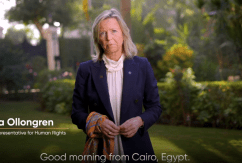








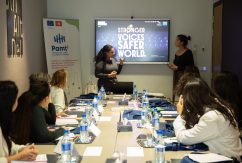
















 Syria
Syria 



